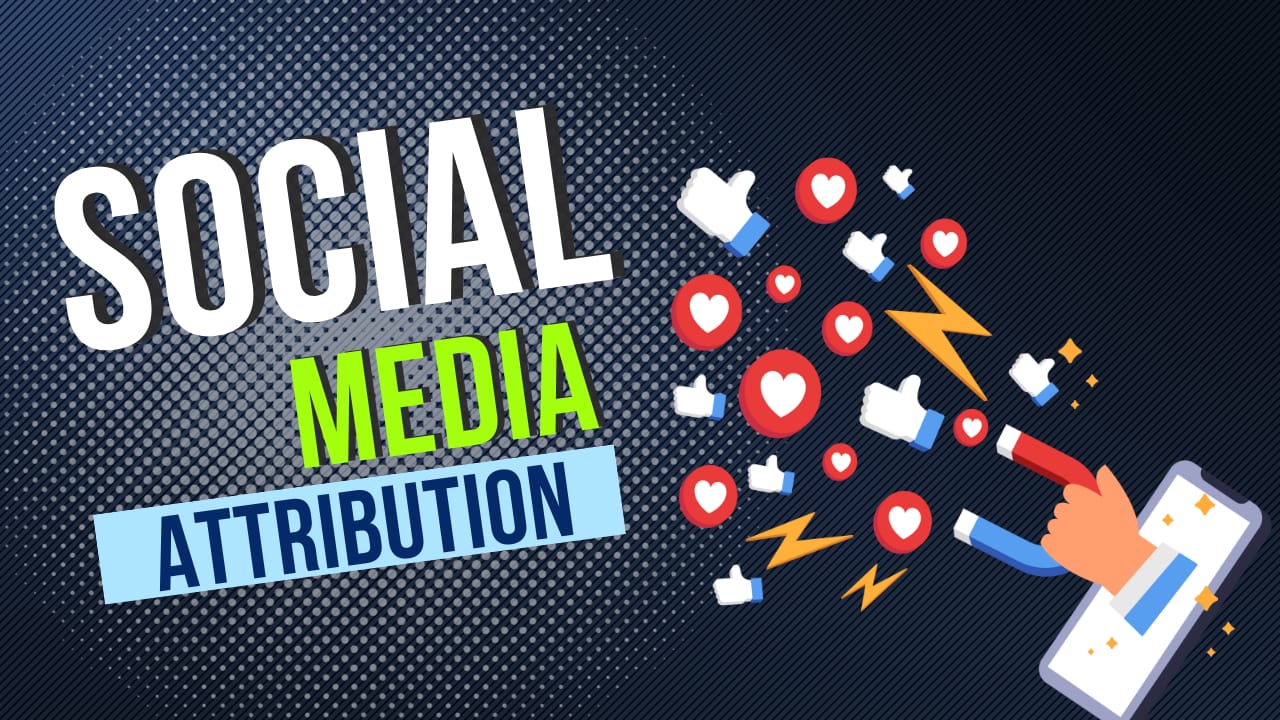Social media attribution is the key to unraveling this impact and making informed decisions.
This article will delve into the depths of social media attribution, explaining its significance, methodologies, and strategies for optimal results.
As we explore this subject, we will also emphasize the importance of optimizing content for SEO to enhance visibility and reach.
The Significance of Social Media Attribution
In the context of digital marketing, attribution is the process of identifying and assigning value to various touchpoints in a customer’s journey. Social media attribution, specifically, refers to understanding how social media interactions contribute to conversions and the overall success of a marketing campaign.
In a digital landscape dominated by numerous social media platforms, each with unique features and reach, attribution helps businesses comprehend which platforms drive the most significant impact. This understanding allows for informed resource allocation and strategy refinement to maximize ROI.
Different Types of Social Media Attribution Models
Various attribution models are employed to comprehend the effectiveness of your social media campaigns. Here are a few common types:
1. Last-Click Attribution
This model gives the last interaction before a conversion full credit. It’s a straightforward model but tends to undervalue the role of earlier touchpoints in the customer journey.
2. First-Click Attribution
Contrary to last-click attribution, first-click attribution gives all the credit to the initial touchpoint in the customer journey. However, it may overlook the influence of subsequent interactions contributing to the final conversion.
3. Linear Attribution
Linear attribution assigns equal credit to each touchpoint in the customer journey. It offers a fair trip representation but might not accurately capture the most impactful touchpoints.
4. Time Decay Attribution
In this model, interactions closer to the conversion receive more credit than those farther away in time. It acknowledges that interactions nearer to the conversion often have a more significant influence.
5. Algorithmic Attribution
This sophisticated model uses algorithms to assign credit to touchpoints based on various parameters and historical data. It offers a more customized and data-driven approach to attribution.
7. Measuring ROI
Calculating the Value of Social Media Attribution.
In this section, we’ll delve into measuring Return on Investment (ROI) in the context of social media attribution, providing insights into evaluating the true value of your marketing efforts.
8. Advanced Analytics
Extracting Actionable Insights for Optimization
Discuss advanced analytics tools and techniques that can be utilized to extract actionable insights from social media data, aiding in optimization and informed decision-making.
9. A/B Testing and Iterative Refinement
Enhancing Social Media Campaign Effectiveness
Detail the importance of A/B testing in social media campaigns and iterative refinement strategies, demonstrating how to improve campaign performance continually.
10. The Future of Social Media Attribution
Explore emerging trends and technologies that are expected to shape the future of social media attribution, helping businesses stay ahead of the curve and adapt to changing consumer behaviors.
Strategies for Effective Social Media Attribution
Achieving meaningful social media attribution necessitates a strategic approach. Here are actionable strategies to optimize your efforts:
1. Define Clear Goals and Metrics
Begin by establishing clear and measurable goals for your social media campaigns. Whether it’s increasing website visits, driving app downloads, or boosting product purchases, define the metrics you’ll use to measure success.
2. Utilize UTM Parameters
Implement UTM (Urchin Tracking Module) parameters in your social media URLs to accurately track specific campaigns, mediums, and sources. UTM parameters provide valuable insights into the performance of your social media links.
3. Leverage Social Media Analytics
Leverage the robust analytics tools provided by social media platforms. Platforms like Facebook Insights, Twitter Analytics, and LinkedIn Analytics offer valuable data on engagement, reach, and conversions.
4. Implement Multi-Touch Attribution Models
Given the complexities of consumer behavior, multi-touch attribution models like linear or algorithmic attribution provide a more accurate representation of how each touchpoint contributes to the conversion process.
5. Track Cross-Device Conversions
In today’s multi-device world, tracking how users move across devices is crucial before converting. Implement strategies to track cross-device conversions and understand the role of each device in the customer journey.
6. Analyze Customer Feedback and Behavior
Regularly analyze customer feedback and behavior on social media platforms. Insights from comments, reviews, and social interactions can provide a deeper understanding of how social media impacts their decision-making process.
SEO Optimization for Enhanced Visibility
Incorporating SEO strategies into your content is vital to enhance visibility and reach.
Optimizing content using relevant keywords, creating high-quality backlinks, and ensuring a seamless user experience are essential aspects of SEO.
Here’s how to integrate SEO optimization into your social media strategy:
1. Keyword Integration
Incorporate relevant keywords into your social media profiles, posts, and captions. Understand the keywords your audience uses and strategically use them to enhance your content’s visibility.
2. Optimized Content Sharing
When sharing content on social media, ensure it is optimized for SEO. Include meta descriptions, titles, and alt text for images with relevant keywords, making your content more discoverable.
3. Engagement and User Experience
Engage with your audience and create a positive user experience. Search engines consider user engagement metrics, such as likes, shares, and comments, as indicators of content quality.
4. Quality Backlinks
Foster relationships with influencers and industry authorities to obtain quality backlinks to your website. Backlinks from reputable sources boost your website’s credibility and improve its search engine ranking.
Conclusion
In digital marketing, social media attribution stands as a vital tool for understanding the impact of social platforms on your business.
Companies can optimize their marketing efforts, allocate resources effectively, and maximize ROI by employing appropriate attribution models and strategies.
Furthermore, integrating SEO optimization into social media practices enhances visibility and ensures a broader reach. Stay informed, adapt to evolving consumer behaviors, and utilize these insights to drive your business forward in the digital landscape.
